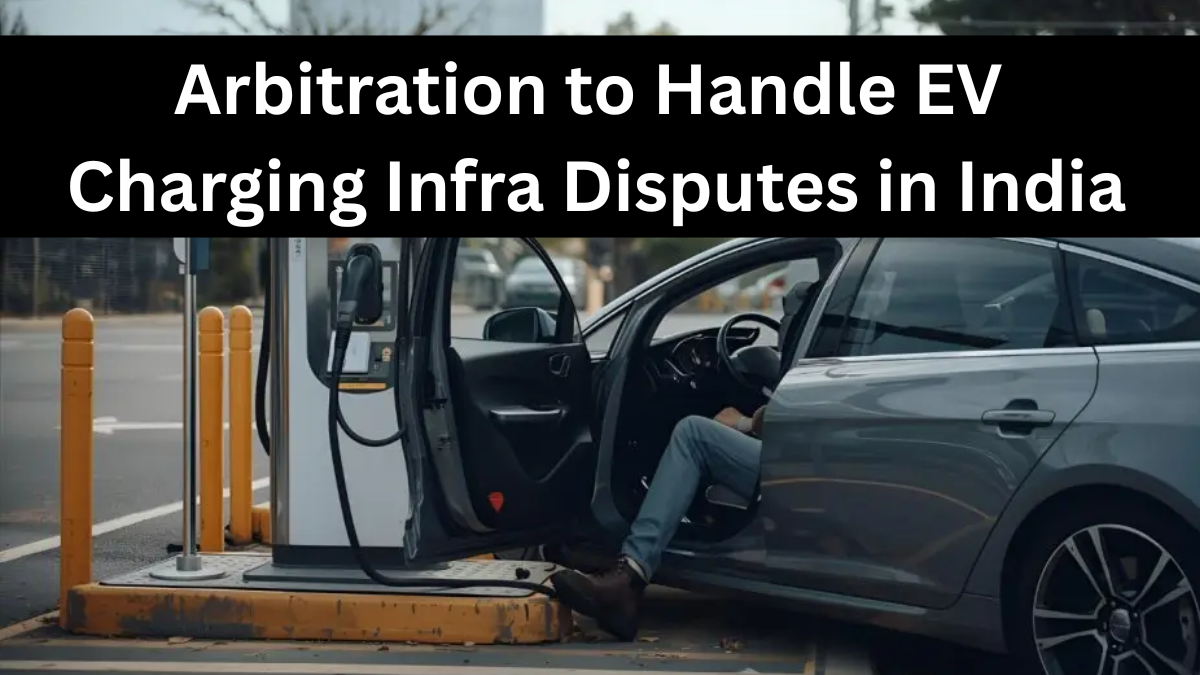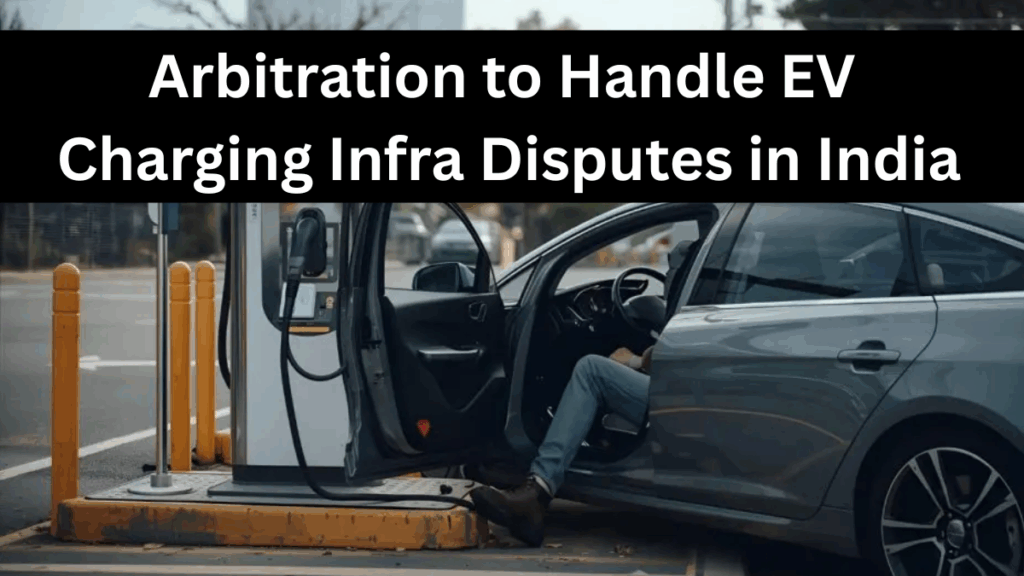The rapid rollout of electric mobility in India brings tremendous opportunity — and new friction points too. As the nation races to build out its charging network, disputes are emerging in the contracts underlying it. Arbitration is increasingly becoming the preferred mechanism to resolve conflicts in the EV ecosystem.
Why arbitration is becoming a go-to in charging infrastructure
The landscape of charging networks is dynamic. From land leases and service-level agreements to maintenance and payment schedules, contracts governing this network are complex. Some key drivers pushing arbitration into the spotlight include:
-
Multiple stakeholders (government agencies, private operators, utilities, land-owners) lead to public-private disputes.
-
Many EV charging infra contracts include arbitration or ADR clauses, signaling that participants anticipate conflict.
-
Traditional litigation is slow, congested, and costly — infrastructure projects can sit idle due to legal uncertainty.
-
Regulatory updates and tender documents increasingly require escalation to arbitration for faster resolution.
The framework: How these contracts are shaped
Here’s a snapshot of typical clauses and how they frame dispute resolution in the charging-infra space:
| Element | Typical provision | Why it matters |
|---|---|---|
| Seat & language of arbitration | “Seat: New Delhi, English language” | Neutral location + common language simplify the process for all parties |
| Limitation of claims | Excludes disputes under ₹5 lakhs from arbitration | Filters small claims and avoids mismatching the forum to the quantum |
| Contract performance during dispute | Parties must continue performing while arbitration is ongoing | Prevents project stalling, vital for EV charging uptime |
| Governing law | Indian law, Arbitration & Conciliation Act, 1996 | Ensures consistency and enforceability domestically |
These clauses become especially important when managing EV charging infra contracts in hybrid models — private enterprise operating on public land or government-mandated sites.
The nature of disputes emerging
Common conflicts around EV charger networks include:
-
Termination or suspension of charger rollout contracts.
-
Payment defaults (e.g., an operator not being paid by the land-owner or utility).
-
Service-level breaches (chargers down, long downtime, malfunctioning infrastructure).
-
Land lease disagreements — classic public-private disputes.
-
Enforcement challenges — even after an arbitration award is granted, compliance may be delayed.
A recent example: The National Company Law Tribunal (Mumbai Bench) admitted the insolvency resolution plea of Tata Power EV Charging Solutions Ltd against Cab-Eez Infra, stating that invoking arbitration after the fact did not serve as a valid defense.
Why arbitration makes strategic sense for EV charging infra
Benefits of arbitration for operators, government entities, and financiers:
-
Speed & Flexibility: Faster than courts and suited for technical disputes.
-
Expertise: Arbitrators can be selected for domain knowledge in infrastructure, energy, and technology.
-
Confidentiality: Keeps sensitive contract terms and financial issues private.
-
Enforceability: Awards under domestic arbitration laws are easier to enforce than litigation in courts.
-
Global alignment: Familiar framework for international stakeholders and cross-border agreements.
Challenges in arbitration
Despite advantages, several challenges exist:
-
Delay risks & costs: Even arbitration can face extensions and backlogs.
-
Multiplicity of actors: Government, utility, landowner, operator, and tech vendor can complicate arbitration initiation.
-
Enforcement issues: Awards may be hard to enforce if counter-party is a public entity.
-
Contract drafting gaps: Older or hastily drafted contracts may lack robust arbitration clauses.
-
Mediation vs Arbitration: For smaller claims, mediation may be preferred in some public sector setups.
Best practices for stakeholders in EV charging infra
Stakeholders should consider:
-
Draft EV charging infra contracts carefully with clear arbitration clauses.
-
Use multi-tier dispute resolution: conciliation/mediation first, arbitration if unresolved.
-
Monitor key performance indicators (uptime, payment schedules, meter accuracy).
-
Maintain thorough documentation: inspection logs, invoices, and correspondence.
-
Engage neutral technical experts for disputes.
-
Plan award enforcement proactively, especially for public-private disputes.
Looking ahead: What to expect in 2025 and beyond
-
Volume of public-private disputes in EV charging networks is likely to increase.
-
Regulators may issue standardized templates for EV charging infra contracts with embedded arbitration norms.
-
Stakeholders will benchmark resolution timelines, accelerating ADR mechanisms over court litigation.
-
With evolving tech (smart chargers, software platforms), disputes may extend to software performance, uptime guarantees, and data rights.
FAQs
Q1: What kinds of disputes typically go to arbitration for EV charging infra contracts?
A1: Common issues include non-payment, service-level breaches, land-lease disputes, termination of contracts, and disagreements over upgrades or maintenance.
Q2: Are all EV charging infra contracts required to have arbitration clauses?
A2: Not necessarily, but most modern contracts include them due to the complexity and multiple stakeholders involved.
Q3: In a public-private setup, who initiates arbitration if there’s a dispute?
A3: Either the public entity or private operator can invoke arbitration if the dispute falls under the arbitration clause of the contract.
Q4: What are the benefits and drawbacks of arbitration for these disputes?
A4:
-
Pros: Faster resolution, domain expertise, confidential, flexible procedures, allows ongoing performance.
-
Cons: Costs, potential delays, enforcement challenges, and poorly drafted contracts can complicate proceedings.
Click here to learn more

